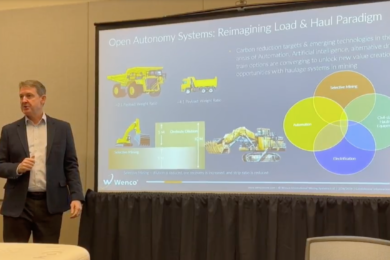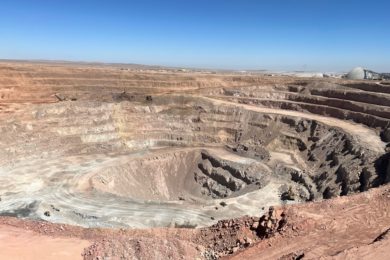No growth is possible within Australia’s largest undeveloped footprint – Northern Australia – without fundamental gains in its “infrastructure trifecta”, according to one of the region’s most experienced industry lobbyists. Mayor of Mount Isa, Madam Mayor Joyce McCulloch, said today the costs and handling of the region’s three main infrastructure essentials – energy, transport and water supply – are the main issues constricting much needed new domestic and international investment across northern Australia.
“Government and private sector support to improve these three factors is crucial to ensuring the future viability of industry across Australia’s north, particularly for its globally-renowned but maturing mining sector and its more prospective and emerging gas, agricultural and tourism upside,” Cr McCulloch said.
Her comments come ahead of a keynote address next month by Cr McCulloch to a major forum on the resource driven development of northern and regional Australia. The forum is part of a ‘Big Issues’ summit day at the inaugural four day convention of the Australia Geoscience Council, being held in Adelaide from October 15 during Earth Science Week 2018.
Cr McCulloch – a long-time Mount Isa resident – pointed to the just released North West Minerals Province report, which addresses future requirements of the world-renowned but maturing copper, gold, lead and zinc regions around Mount Isa.
“That report is symptomatic of the level of focus needed to concentrate political and business wills to ensure a planned and well-orchestrated pathway to growth emerges, so that the region prospers, not wilts,” she said.
“Despite the fact they say mining has historically been a primary driver for regional employment and economic growth across much of northern Australia, the sector faces economic challenges, with older mines closing and exploration activity and investment in mining projects muted in recent years by low commodity prices.
“With global commodity prices improving, there is an opportunity for renewal in northern Australia’s mining industries but this renewal needs more efficient use of available infrastructure, improved exploration and mining approvals processes, encouraging the processing of waste material and attracting fresh resources-based capital.”
Cr McCulloch warned that while northern Australia was heavily mining reliant and focused, the Taskforce findings for example favoured a holistic approach leveraging strong regional partnerships across local industries, communities and with key stakeholders, to deliver prosperity but to also ensure greater regional resilience as sectors went through their economic cycles.
“The lessons are simple and the way ahead quite clear,” Cr McCulloch said.
“Northern Australia must obviously facilitate continued mineral sector development but stakeholders must look to diversify this regional economy, create job opportunities and have government work with businesses and communities to deliver integrated and appropriate services,” she said.
“Slashing the ridiculously high regional air fares across northern Australia would be one major step-up point.”
This should include pressure for better air travel deals based on improved airfare parity, price monitoring, cost reductions, competition enhancements and subsidies for northern Australia’s local routes compared to the more heavily travelled metropolitan and popular coastal routes of eastern Australia.
The prominent local government identity said she hoped such an important summit next month would also recognise the growth value to northern Australia of delivering more natural gas exploration programs, and rolling out new geoscience data systems.
“This is a time for long-term thinking and solutions agreement – not short-term political slights of hand,” Cr McCulloch said.
“This applies particularly on the energy supply side where the region needs and could benefit from new gas discoveries in the Isa Superbasin to further support the area’s emerging new gas pipeline network and what that can do for new industrial opportunities and investment.”
Such momentum would also underpin the potential of regional council efforts across northern Australia to bolster economic development, such as the new Tennant Creek to Mount Isa Cross Border Commission with its focus on precipitating transport and energy outcomes in the region.
More than 1,000 delegates are expected in Adelaide over the four day forum, with headline speakers including an address by renowned US academic, Professor Matthew Huber from the Department of Earth, Atmospheric, and Planetary Sciences at Purdue University, Indiana and geologist-communicator expert, Professor Iain Stewart, who produced the ‘How to Grow a Planet’ videos for the BBC.
Other key areas of attention at the Australian Geoscience Council Convention (AGCC 2018) will be better balancing out the country’s mining boom and bust cycles, the better management of our energy generation, feedstocks and energy security and better geoscience education and communication.
The Big Issues and Ideas day on Tuesday October 16 is designed to highlight the fundamental role that Geoscience has as a major field of science throughout the Australasian-Pacific region.
For more information, visit www.agcc.org.au.










